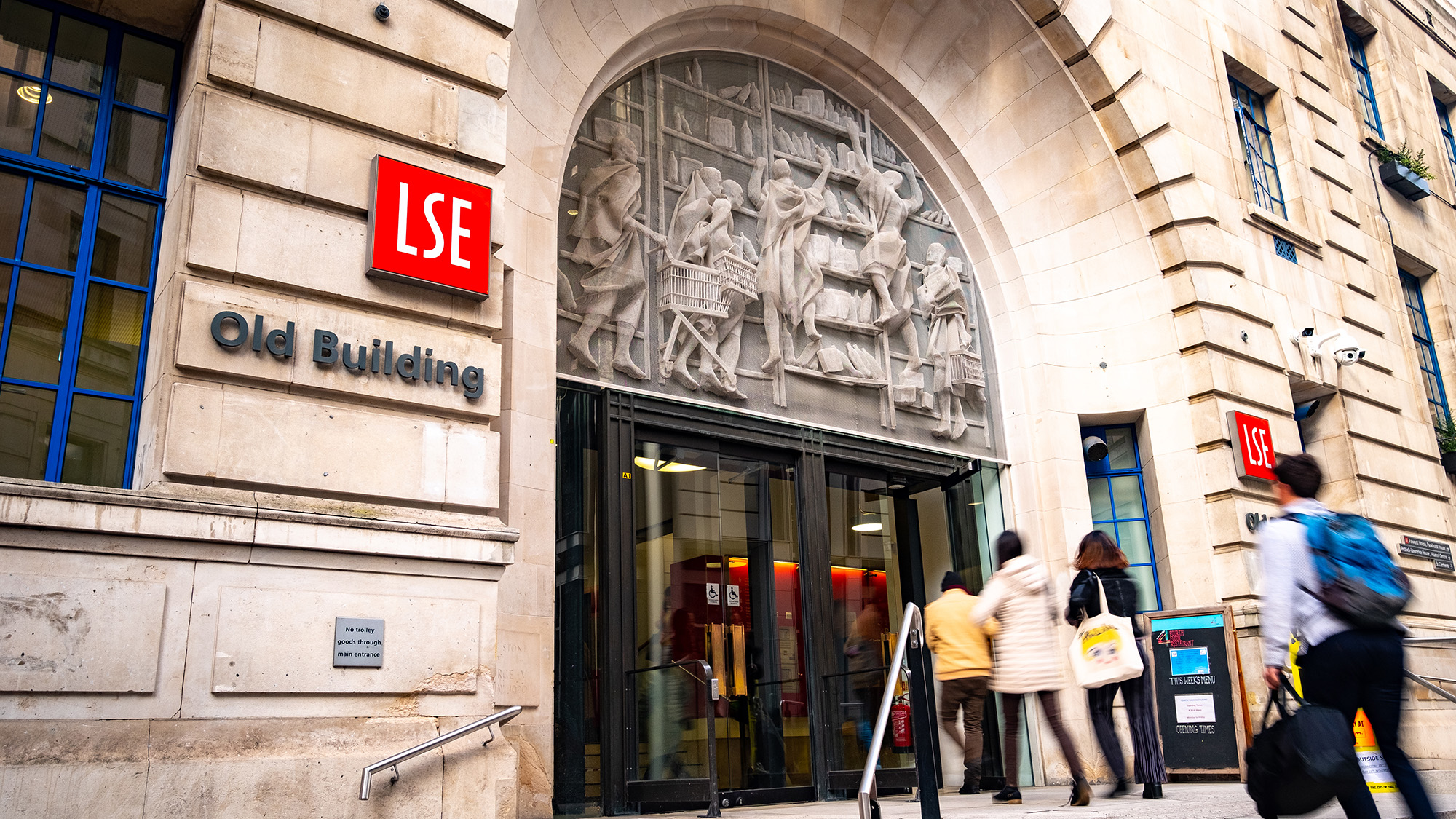The coronavirus pandemic has transformed the workplace more than any disruptive technology
In just two months, COVID-19 has done what artificial intelligence and automation once promised to do within years


Sign up today and you will receive a free copy of our Future Focus 2025 report - the leading guidance on AI, cybersecurity and other IT challenges as per 700+ senior executives
You are now subscribed
Your newsletter sign-up was successful
Throughout 2018, I wrote a plethora of articles about technology displacing jobs. Countless news, opinion and in-depth pieces that would contradict each other if all read in one sitting. One expert says artificial intelligence (AI) is going to cull jobs, while another says it's going to create them. Meanwhile, the people actually working in IT are worried they don't have the skill sets to keep up with the pace of change, and so on.
Change is inevitable of course; disruptors like automation and AI have already shown they can do things faster than our fleshy fingers and limited brains, and our history is littered with examples of technology displacing jobs and changing how we work. The recurring theme over the past decade or so has been that the pace of change caused by these emerging technologies would be rapid. This in turn led to clichéd talk of data being “the new oil" and claims that the so-called fourth industrial revolution would unleash change more dramatic and impactful than anything the human race had seen before – including the discovery of fire and invention of the wheel.
While the hyperbole may be stifling, the trends are real. Automation in particular has already had a significant impact. Some seven million American workers have lost their job to robotic manufacturing since 2004, according to a study by Harvard Business School. In China, the Changying Precision Technology factory had replaced 90% of its workforce with automation as early as 2015. Companies like Volkswagen have set plans in motion to replace retiring factory workers with machines.
But while other innovations, such as intelligent AI and chatbots, are predicted to do the same, something else has come along and shaken up our lives and jobs far quicker than any advancing technology – COVID-19, aka the coronavirus. What's more, it has done so in just under two months, dividing the working world between the furloughed, the essential and the remote.
Since lockdown was imposed, job adverts for positions in healthcare and logistics have noticeably increased, according to figures from Totaljobs and the British Chamber of Commerce (BCC), with the latter sector seeing the biggest increase in advertised jobs in March. This is perhaps unsurprising, given the circumstances, but the industry with the highest number of overall job listings is the tech sector. There’s also greater interest in working in the tech sector, with a 31% increase in searches for IT roles on the Totaljobs platform in the second week of April.
The BCC, meanwhile, has released the results of its Coronavirus Impact Tracker, which found the majority of the UK's businesses have made changes to fit around lockdowns and social distancing measures, most of which are highly dependent on technology. According to the report, 66% of organisations have embraced remote working, with 50% using some form of video conferencing software to keep their operations going.
The BCC believes that just 24% of firms have temporarily closed, with others taking adoptive steps: 12% have changed products or services, 14% have used online sales platforms, and 14% have made use of delivery services.
Sign up today and you will receive a free copy of our Future Focus 2025 report - the leading guidance on AI, cybersecurity and other IT challenges as per 700+ senior executives
It's estimated that up to a million workers could find themselves displaced by the outbreak of COVID-19. Compare that to figures from the Office for National Statistics in 2019 that estimated that 1.5 million UK jobs could be at risk from automation, or Deloitte’s prediction that 35% of all jobs would be lost to the technology within two decades.
Totaljobs and the BCC believe the coronavirus pandemic presents an opportunity to find work within an industry such as logistics, social care or the tech sector, with more "diversifying" to come. This is the shake-up of the UK's employment market that AI and automation once promised, delivered instead by a microbe.
Of course, the disruption doesn't stop with the end of the lockdown – if the deep recession some economists are predicting comes to pass, there are likely to be significant job losses. I feel extremely privileged to still be in work, thanks to both the nature of my job, the technology my employer has put in place to keep me going, and the fact we had already embraced flexible working a few years ago.
Nevertheless, my voice is also among those asking when our lives will be going back to normal.
RELATED RESOURCE

The IT Pro Podcast: Can tech survive Coronavirus?
COVID-19 is sweeping the globe, but how much will it affect the tech industry?
The answer to that question, though, might be “never”. What’s considered normal changes, often due to technological advances, and while they may not have been the change agent, technologies like cloud, e-commerce – and yes automation and AI – have kept a lot of us going through the global pandemic.
Bobby Hellard is ITPro's Reviews Editor and has worked on CloudPro and ChannelPro since 2018. In his time at ITPro, Bobby has covered stories for all the major technology companies, such as Apple, Microsoft, Amazon and Facebook, and regularly attends industry-leading events such as AWS Re:Invent and Google Cloud Next.
Bobby mainly covers hardware reviews, but you will also recognize him as the face of many of our video reviews of laptops and smartphones.
-
 Stop treating agentic AI projects like traditional software
Stop treating agentic AI projects like traditional softwareAnalysis Designing and building agents is one thing, but testing and governance is crucial to success
-
 PayPal appoints HP’s Enrique Lores in surprise CEO shake-up
PayPal appoints HP’s Enrique Lores in surprise CEO shake-upNews The veteran tech executive will lead the payments giant into its next growth phase amid mounting industry challenges
-
 UK tech profit warnings at highest level since pandemic
UK tech profit warnings at highest level since pandemicNews Sector uncertainty has continued to dampen profits, with the percentage of firms delisting also having risen
-
 Google rescinds mandatory vaccination policy for US staff
Google rescinds mandatory vaccination policy for US staffNews Employees will also be able to once again benefit from the campus’ massage and shuttle services
-
 Podcast transcript: Digital stagnation in a post-COVID world
Podcast transcript: Digital stagnation in a post-COVID worldIT Pro Podcast Read the full transcript for this episode of the IT Pro Podcast
-
 The IT Pro Podcast: Digital stagnation in a post-COVID world
The IT Pro Podcast: Digital stagnation in a post-COVID worldIT Pro Podcast The pandemic supercharged digital transformation, but what happens now?
-
 SMBs rethinking return to office amid Delta surge
SMBs rethinking return to office amid Delta surgeNews Almost 15% of small businesses have already pushed back their return to office date
-
 How LSE is using digital technology to shape the future of higher education
How LSE is using digital technology to shape the future of higher educationIn-depth COVID may have accelerated digital transformation projects, but progress doesn't have to stop there
-
 How to manage people successfully from a distance
How to manage people successfully from a distanceIn-depth Hybrid working is here to stay, and that means new management tactics for CIOs
-
 Post-pandemic tech jobs
Post-pandemic tech jobsIn-depth How has the pandemic changed the tech jobs landscape, and which tech jobs will be in demand throughout 2021?
